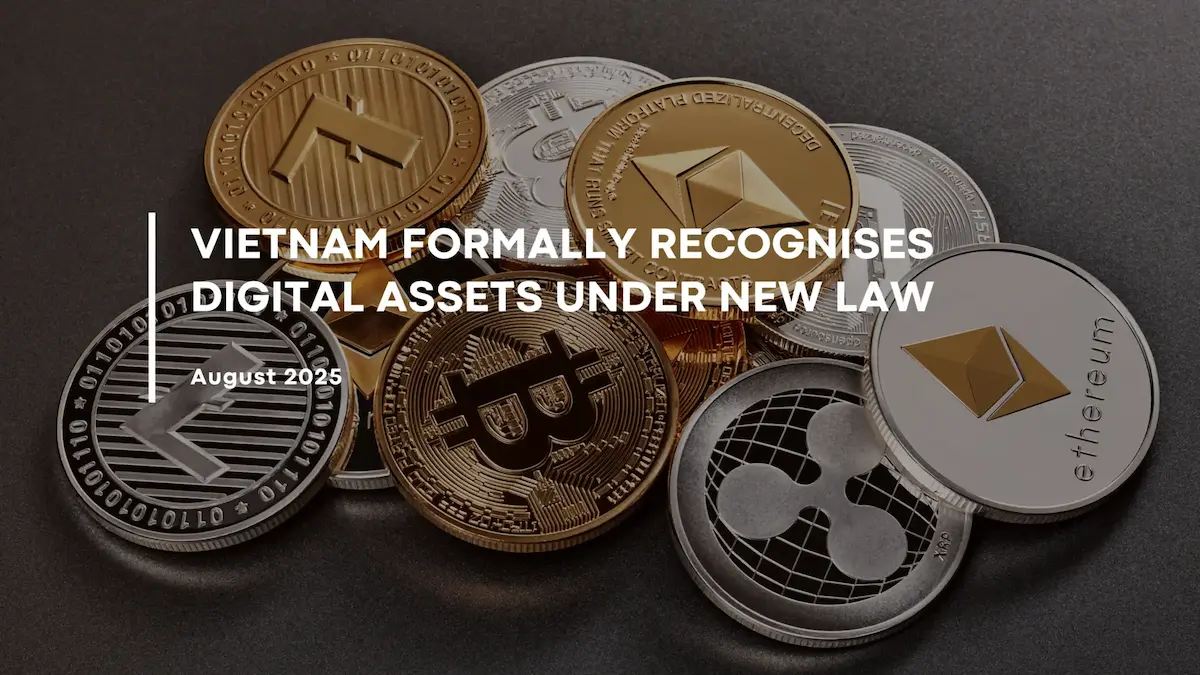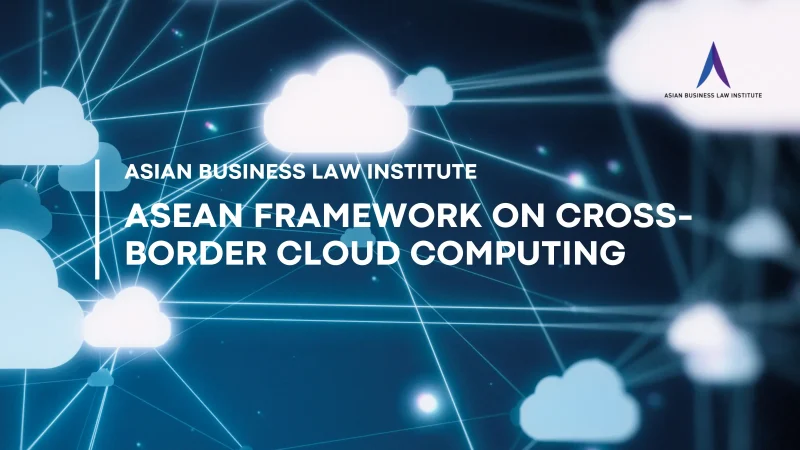A. Introduction
In June 2025, Vietnam’s National Assembly passed the Law on Digital Technology Industry, a landmark piece of legislation that, for the first time, provides formal legal recognition of digital assets. The new law classifies digital assets as a type of property under the Civil Code, establishing a legal foundation for ownership, transfer, and dispute resolution – areas previously left in legal uncertainty.
This move is not without context. According to TripleA, Vietnam ranks among the top five countries globally for cryptocurrency ownership, with over 17 million Vietnamese, nearly 18% of the population, holding digital assets. Chainalysis has also consistently ranked Vietnam at the top of its Global Crypto Adoption Index, highlighting widespread grassroots use of cryptocurrencies across remittances, trading, and decentralised finance. Yet, until now, digital assets has no formal standing in Vietnamese law.
B. Recognition and Definition of Digital Assets
At the core of the new law is the legal recognition of digital assets as a form of property under the Civil Code. This classification means that digital assets can now be legally owned, transferred, inherited, and subject to civil rights protections in Vietnam.
The law distinguishes between several categories of digital assets:
- Virtual assets (“tài sản ảo”) refer to digitally stored units that can be used for exchange or investment purposes.
- Encrypted assets (“tài sản mã hóa”) are a subset of digital assets that uses encryption technology or other similar digital technology to authenticate the asset during its creation, issuance, storage, and transfer.
The law explicitly excludes central bank digital currencies (CBDCs), securities, and other financial assets governed under separate regulatory regimes.
C. Regulatory Oversight of Digital Asset Activities
In addition to recognition, the law grants the government broad authority to develop oversight mechanisms of digital asset-related activities and supervise the entire lifecycle of digital assets, and a detailed legal framework is expected to be published in the coming months. This includes regulating the issuance, transfer, storage, and ownership of digital assets; setting out the rights and obligations of parties involved; and introducing safeguards to address cybersecurity risks, public safety, and anti-money laundering concerns. This move brings Vietnam closer in line with international financial norms and addresses concerns raised by the Financial Action Task Force (FATF), which previously placed Vietnam on its grey list for AML deficiencies.
While the law has not established a legal framework for digital-asset trading platforms, it opened the door to state-guided pilot exchanges. As part of this, the Ministry of Finance is working on a pilot proposal, potentially paving the way for a regulated and government-supervised trading environment. In a related development, on 12 August 2025, South Korea’s Dunamu – the operator behind Upbit – has signed a memorandum of understanding with Vietnam’s Military Bank (MB Bank) to launch the country’s first locally operated digital-asset trading platform.
D. What This Means
The recognition of digital assets under Vietnamese law is expected to bring a wide range of legal, economic, and regulatory benefits.
First, it provides legal clarity and enforceable protections to users and investors, allowing disputes involving digital assets to be addressed within the formal legal system, something previously unavailable.
Second, it enables the government to more effectively combat illicit activity associated with digital assets, particularly in relation to money laundering and tax evasion.
This legal framework is also expected to shift market activity from the informal sector to regulated channels, enhancing transparency and public trust. Furthermore, by recognising digital assets as a taxable property, the law creates new avenues for state revenue collection, particularly from trading, investment, and capital gains involving crypto assets.
E. Conclusion
Vietnam’s formal recognition of digital assets marks a pivotal moment in its digital transformation. By providing a legal definition, outlining government oversight, and integrating digital assets into the existing civil property regime, the country has taken a bold step toward a more transparent, accountable, and innovation-friendly digital economy.
The law will take effect from 1 January 2026, giving stakeholders time to prepare for compliance and opportunities within a now-legally recognised digital asset landscape.
© PDLegal LLC
This article is intended to provide general information only and does not constitute legal advice. It should not be used as a substitute for professional legal consultation. We recommend seeking legal advice before making any decisions based on the information available in this article. PDLegal fully disclaims responsibility for any loss or damage which may result from relying on this article.
Further information
Should you want to stay updated on the regulatory changes in Vietnam and how these developments may affect you or your business, please get in touch with the following persons:

